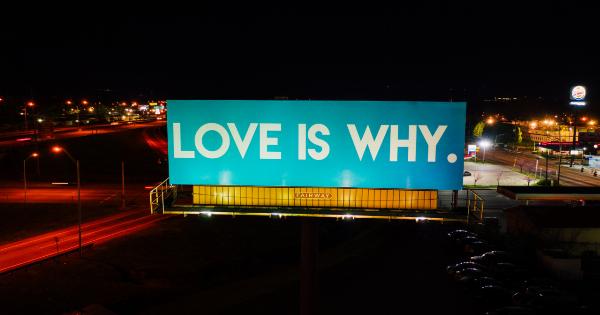Economic inequality is a pressing issue that affects societies across the globe. When a significant portion of a population is excluded from the benefits of economic growth, the consequences can be severe and far-reaching.
Unfortunately, the lack of vision in addressing this issue only serves to exacerbate the problem. In this article, we will explore the consequences of ignoring economic inequality and delve into why it is imperative for societies to take action.
1. Social unrest and political instability
One of the most immediate consequences of economic inequality is social unrest and political instability.
When there is a stark divide between the rich and the poor, it creates a sense of injustice and leads to resentment and anger among the disadvantaged groups. This can fuel social unrest, protests, and even riots, which in turn can destabilize governments and lead to a breakdown of law and order.
2. Decreased economic growth
Economic inequality can also have a detrimental impact on overall economic growth. When a large segment of the population is unable to access resources and opportunities, their potential contribution to the economy remains untapped.
This leads to a loss of productivity and innovation, ultimately hampering economic growth. Research has consistently shown that reducing income inequality can significantly boost economic growth.
3. Health disparities and reduced well-being
Another consequence of economic inequality is the emergence of health disparities and reduced overall well-being. People who find themselves in lower income brackets often lack access to quality healthcare, nutritious food, and other basic amenities.
As a result, they are more likely to suffer from poor health outcomes and have a lower life expectancy. This not only impacts individuals but also burdens the healthcare system and reduces the overall well-being of society.
4. Increased crime rates
There is a strong correlation between economic inequality and crime rates. When people are deprived of opportunities and resources, desperation can drive individuals towards criminal activities.
The lack of social mobility and economic prospects can make crime seem like the only viable option for survival. As a result, communities plagued by economic inequality often experience higher crime rates, further perpetuating a cycle of poverty and despair.
5. Education gaps and limited upward mobility
Education is often seen as a pathway to upward mobility and a means to escape poverty. However, economic inequality can create significant barriers to accessing quality education.
Affluent communities typically have better-funded schools and resources, while economically disadvantaged areas struggle with underfunded schools and lack of educational opportunities. This perpetuates the cycle of inequality, limiting upward mobility and trapping individuals in intergenerational poverty.
6. Increased political polarization
Ignoring economic inequality can contribute to increased political polarization. When a society fails to address the needs and concerns of the economically disadvantaged, it creates a divide between different social classes.
The poor and marginalized communities feel ignored and voiceless, leading to political alienation. This polarization can hinder meaningful dialogue, compromise, and effective policy-making, further perpetuating economic inequality.
7. Undermined social cohesion
Economic inequality erodes social cohesion and trust within a society. When there is a wide wealth gap and limited opportunities for social mobility, it fosters a sense of division and competition.
This can lead to a breakdown of social bonds, as individuals are more likely to prioritize their own interests over the collective good. Strong social cohesion is essential for a thriving society, and a lack thereof can have detrimental consequences for social harmony.
8. Increased healthcare costs
Economic inequality also has a direct impact on healthcare costs. With a significant portion of the population lacking access to adequate healthcare, they often delay seeking treatment until their conditions worsen.
This results in higher healthcare costs and a strain on the healthcare system. Furthermore, the burden of escalating healthcare costs falls disproportionately on the economically disadvantaged, exacerbating the inequality even further.
9. Weakened democracy
Democracy thrives on the principle of equal representation and the voice of every citizen being heard. However, economic inequality undermines this principle by giving disproportionate power and influence to the wealthy elite.
When money becomes the determining factor in political outcomes, it weakens the democratic process and disenfranchises large sections of the population. This erosion of democracy perpetuates the very economic inequality that led to its downfall.
10. Missed opportunities for innovation and progress
Last but not least, ignoring economic inequality means missing out on the immense potential for innovation and progress that lies within disadvantaged communities.
History has shown that some of the most groundbreaking innovations and contributions to society have come from individuals who were initially marginalized due to economic inequality. By overlooking these individuals and their talents, societies are depriving themselves of valuable ideas and advancements that could benefit all.






























